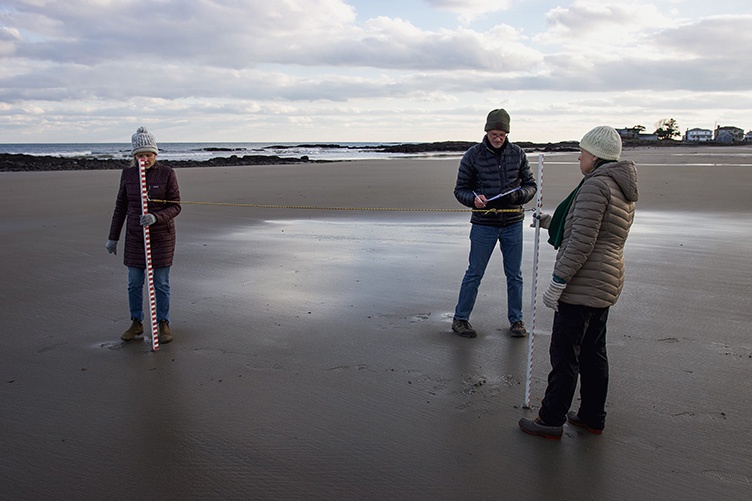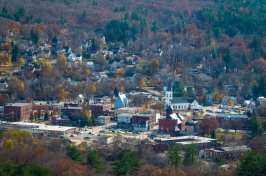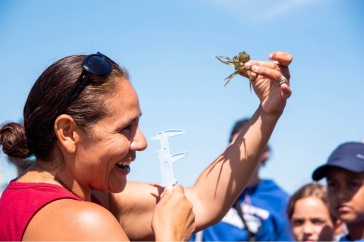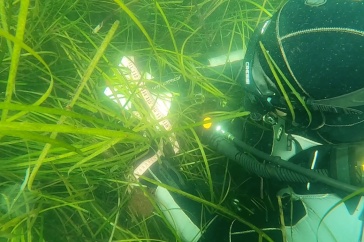
Every year, New Hampshire’s coastline is battered by winter storms, reshaping the shore unpredictably and making risk assessments for coastal flooding a moving target. To help identify both resilient and vulnerable areas, some 40 volunteers hit the beaches to collect information on beach elevation, slope and other characteristics at 15 locations in New Hampshire.
These community members — part of UNH’s Coastal Research Volunteers program — provide university researchers and resource agencies critical “boots- on-the-ground” information that is informing actions to protect vulnerable coastal areas.
The Coastal Research Volunteer program is led by Alyson Eberhardt, a coastal ecosystems specialist with N.H. Sea Grant Extension, in collaboration with others from across UNH. She is also a champion of a research approach called participatory science (also known as citizen science). She and Extension Specialist Malin Clyde are exploring the benefits of collaboration between community participants and university researchers and working to make it easier for the public to connect with scientists.
“Engaging community members in scientific research is a rapidly growing approach that can build trusted partnerships between researchers and community members,” says Eberhardt. “As a result, participatory science can strengthen research that directly addresses community needs.”
At UNH, there are 52 participatory science projects underway or recently completed, studying topics like senior housing, lake water quality in New Hampshire, Madagascar fisheries and forensic anthropology. While this field has grown globally, it remains novel in academia, with no U.S. university offering a dedicated degree. In this context, Eberhart and Clyde and colleagues in the UNH Marine School developed a graduate certificate
in Citizen and Community Science in 2023, and a UNH working group is developing interdisciplinary research partnerships, expanding graduate and undergraduate education, offering professional training and providing technical assistance within and outside the university.
“Engaging volunteers from the community lets us answer new and larger-scale questions in a cost- effective manner and bring fresh and diverse perspectives to our science,” says Eberhardt. “Participatory science ensures we’re solving real- world problems that matter the most to our communities.”
-
Written By:
Dave Kellam | UNH Extension | dave.kellam@unh.edu | 603-395-6008


















































